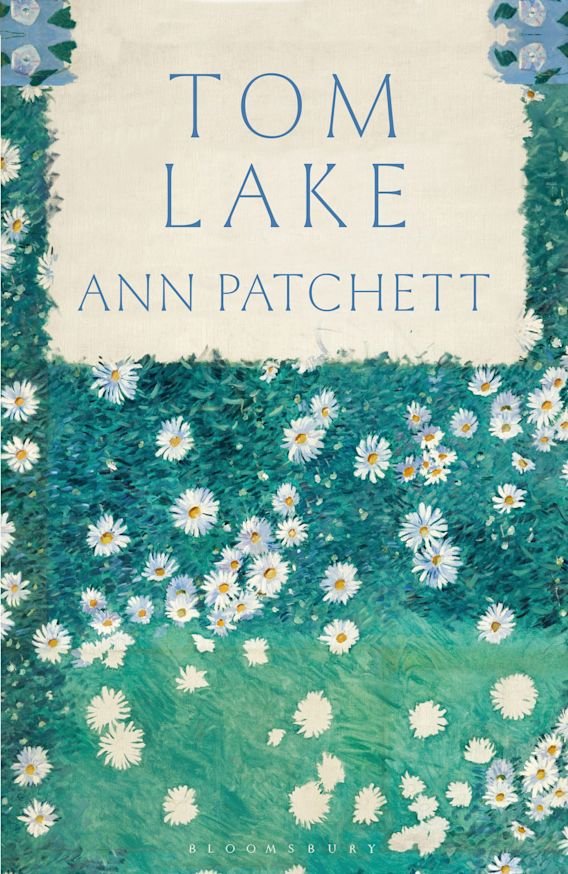I've greatly enjoyed some of Ann Patchett's previous books such as “State of Wonder” and “The Dutch House”. She's won awards and maintains a lovely social media presence promoting books she's enjoyed reading through her Nashville bookstore Pernassus Books. Her latest novel “Tom Lake” has come with critical acclaim and the audiobook has the distinction of being read by Meryl Streep. However, my anticipation for the book was dampened when some readers told me how bland and cozy they found this novel. But I plunged into reading it and was pleasantly surprised to find myself falling for it. It's a story of quiet reflection, the pleasures of family life and how love develops different meanings as we mature.
I think part of the reason why this novel resonated so much with me is timing; it's the right book for me to read now. The main character and narrator is Lara who lives with her husband Joe on a Michigan cherry farm that's been in his family for generations. As the recent pandemic spreads across America their three daughters who are all in their 20s come to shelter with them and assist in the big job of bringing in the cherry harvest. While living together in isolation the daughters demand to know Lara's story about dating an actor named Peter Duke when she was younger. He wasn't famous at the time but he went on to become a big celebrity.
While in this state of lockdown limbo, Lara recounts her experiences in the 1980s becoming a promising young actress herself as well as her heated romance with Duke. They meet while performing in a Summer stock production of 'Our Town' at a location called Tom Lake. The question of why she didn't continue to pursue acting or her relationship with this rising star isn't simple wistful thinking about the road not taken. It's a confrontation with the past where revisiting it from a more mature point of view leads to realisations about what was really at stake and Lara's difficult process of growing into herself. Relating the story to her daughters and husband also requires selecting what to tell and what to leave out – not so much to conceal the truth but to preserve a tender part of her life.
I've seen criticism of this novel from readers bored by a lack of conflict and dramatic plot which is understandable and fair because it's not a showy book. There are certainly twists and revelations and part of the pleasure of this is when Lara realises the truth about something she didn't see at the time. Sometimes we can think back on the past or receive new information and suddenly there's clarity where there was once complete confusion. However, I also think there's a lot on the line for Lara even though she's genuinely content. She dearly loves her family, dog and life on the farm. So it's easy to think of this novel as just cozy fiction. But raking over the past forces her to consider how her story has been shaped by forces beyond her control as well as crucial decisions she's made. There's the very real risk of getting lost in longing.
Part of the pleasure I found in this novel is that it's so much about acting. I used to love acting and there's a lot of great scenes portraying the chaos and camaraderie of putting on a production. Also Patchett shows how the process of performing a character isn't just the portrayal of a role. It reveals different aspects of a person's personality. It can be like a stepping stone towards living more authentically and it's a process of becoming. Yes, it's a profession but it's also a more flamboyant example of how we all adopt personas to meet challenges and new developments in life. By inhabiting the role of Emily Webb in 'Our Town' that character becomes like a companion to Lara and someone she can play off from in the process of discovering what she truly wants. This novel is also a homage to 'Our Town' and if you know the play there will undoubtably be a lot of pleasure in the way Patchett incorporates it into the story. Personally, I've never read it or seen a production of Wilder's play though I'm aware of its plot and its place as a canonical piece of American theatre. So I don't think it's necessary to know the play to appreciate this book.
The main thing I loved about this novel is how it shows the way we shape the stories of our lives. And it doesn't resort to scandals and high drama to do that. In a way it feels more daring to portray contentment and the good fortune of achieving what one really desires rather than presenting anguish in one's lot in life. Ann Patchett is a very famous author and this book is very successful so it doesn't need defending from me. I can understand why it won't entertain or resonate with every reader, but I found it a very moving experience.









